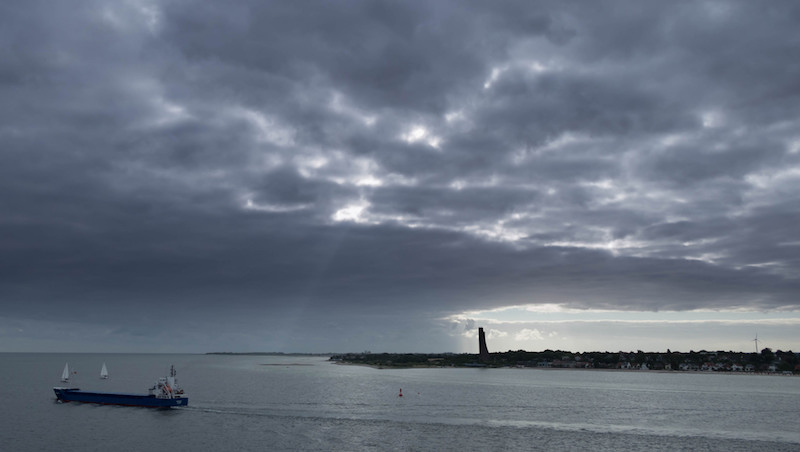Future Earth Oceans Knowledge-Action Network Workshop
 Kiel, Germany. Photo: M. Moers via Flickr
Kiel, Germany. Photo: M. Moers via Flickr
Background
Oceans cover 70% of the earth’s surface and provide vital services to humans. Rapid increases in consumption and population growth cause global environmental change that causes multiple stresses which affect the ocean and coastal regimes that are creating complex, often unpredictable feedbacks and potentially compromising some of the ocean services to humans. More international, more integrated and more fit-for-purpose research is required to improve global and regional ocean system understanding, including defining acceptable targets for ocean health and ecosystem sustainability.
An oceans Knowledge-Action Network would contribute to establishing the knowledge needed to asses the health of ocean systems. It needs to involve the ocean observing system (GOOS) and improve systems to predict ocean system changes and responses to shocks or disasters to and from ocean systems which all represent critical research needs. It will explore new ways to more effectively govern the ocean and coastal space and provide a scientific perspective on sustainable ocean development scenarios. Our capacity to chart a course from knowledge of ocean systems to changes in policies, practices, governance, and behaviors that will assist in sustaining those systems will depend on our ability to develop scalable, integrated and systems-approaches to these issues.
Developing these systems approaches will require integrated transdisciplinary ocean research and direct links to decision-makers around the world. Future Earth and its partners (WCRP-CLIVAR, IOC-GOOS, ICSU-SCOR, …) are well positioned to facilitate the formation of transdisciplinary teams together that can address these challenges (Future Earth Knowledge Action Networks)
While most of the Knowledge-Action Networks currently in development are focused on the eight key challenges of Future Earth, there has been a growing interest from the Future Earth community and other partners to develop a cross-cutting Knowledge-Action Network focused specifically on Oceans.
On December 4 to 5 2016, Future Earth and its partners aim to bring together 50-70 scientists and stakeholders to make significant progress on the design of the Future Earth Oceans Knowledge-Action Network. The primary aims of the workshop are:
- To assemble representatives from several existing academic and practitioner communities dealing with ocean sustainability
- To discuss core ideas, practicalities and expectations for an Oceans Knowledge-Action Network, including a synthesis of outcomes of recent, related workshops (e.g. organised by SOLAS, CLIVAR, SSEESS, IMBER and others)
- To share information on areas for potential collaboration
- To identify prospective partners (especially non-academic, action-oriented groups) who may be part of transdisciplinary teams to respond to funding calls for research (e.g. Belmont Forum CRA; Future Earth’s Fast-Track Initiatives; foundations; World Bank and GEF)
Workshop format
A detailed agenda is currently under development. Please sign up below to receive updates by email.
Tentative Agenda
Sunday, 4 December:
08:30: Registration
09:30: Welcome
10:00: Session 1: Presentations
11:00: Coffee
11:30: Session 2: Presentations
13:00: Lunch
14:00: Session 3: World Café
15:30: Coffee
16:00: Session 4: Discussion of outcome World Café and preparation for next day
18:00: Welcome drink
19:30: Dinner
Monday, 5 December:
8:30: Session 1: Summary of day one and introduction for break-out groups
10:00: Coffee
10:30: Session2: break-out groups
12:30: Lunch
13:30: Session 3: Presentation of break-out groups and discussion
15:00: Coffee
15:30: Session 4: Define roles and responsibilities, next steps
17:00: Closing remarks
18:30: Dinner
Tuesday, 6 December (optional):
8:30 – 11:00: Core-group meeting
Workshop outputs: Refined list of transdisciplinary research priorities for Oceans sustainability. Establish an “Oceans Knowledge-Action Network Development Team” with clear roles and responsibilities. Timeline and roadmap for the Oceans Knowledge-Action Network including milestones such as a “Research and Engagement Plan” and “Funding Strategy”.
To register/apply: The number of participants will be limited to about 50 to 70 participants depending on logistics and funding resources. Some travel funding may be available from the organisers. Please indicate your interest and availability in the application form.
To apply, fill out the registration form here.
You can also share this web link: https://www.surveymonkey.com/r/YYZKBFT
Background reading and relevant documentation:
- Knowledge-Action Networks: Framing and Operationalisation
- Draft Belmont CRA [Note: a revised version will be posted after September 15th]
Organisers:
Future Earth: Launched in 2015, Future Earth is a 10-year initiative to advance Global Sustainability Science, build capacity in this rapidly expanding area of research and provide an international research agenda to guide natural and social scientists working around the world. But it is also a platform for international engagement to ensure that knowledge is generated in partnership with society and users of science.
ICSU – The International Council for Science: The International Council for Science (ICSU) is a non-governmental organisation with a global membership of national scientific bodies (122 Members, representing 142 countries) and International Scientific Unions (31 Members). The long-term strategic vision is for a world where science is used for the benefit of all, excellence in science is valued and scientific knowledge is effectively linked to policy making. ICSU is a member of the Future Earth Governing Council.
Future Ocean – Kiel Marine Sciences: The aim of the Future Ocean “Cluster of Excellence” is to increase our understanding of ocean change and its associated potentials and risks in order to enter into a new symbiotic relationship between humans and the sea. Experts from diverse specialist areas are combining their expertise to address these challenges.
AUTHOR
Future Earth Staff MemberSHARE WITH YOUR NETWORK
RELATED POSTS
Apply for the 2024 Pathways Autumn School: Transformative Research for a Just World and a Habitable Planet
Sustainability Research and Innovation Congress 2024
2022 ECRs in Sustainability Science Webinar: Technology for Cooking-oil Fume Purification